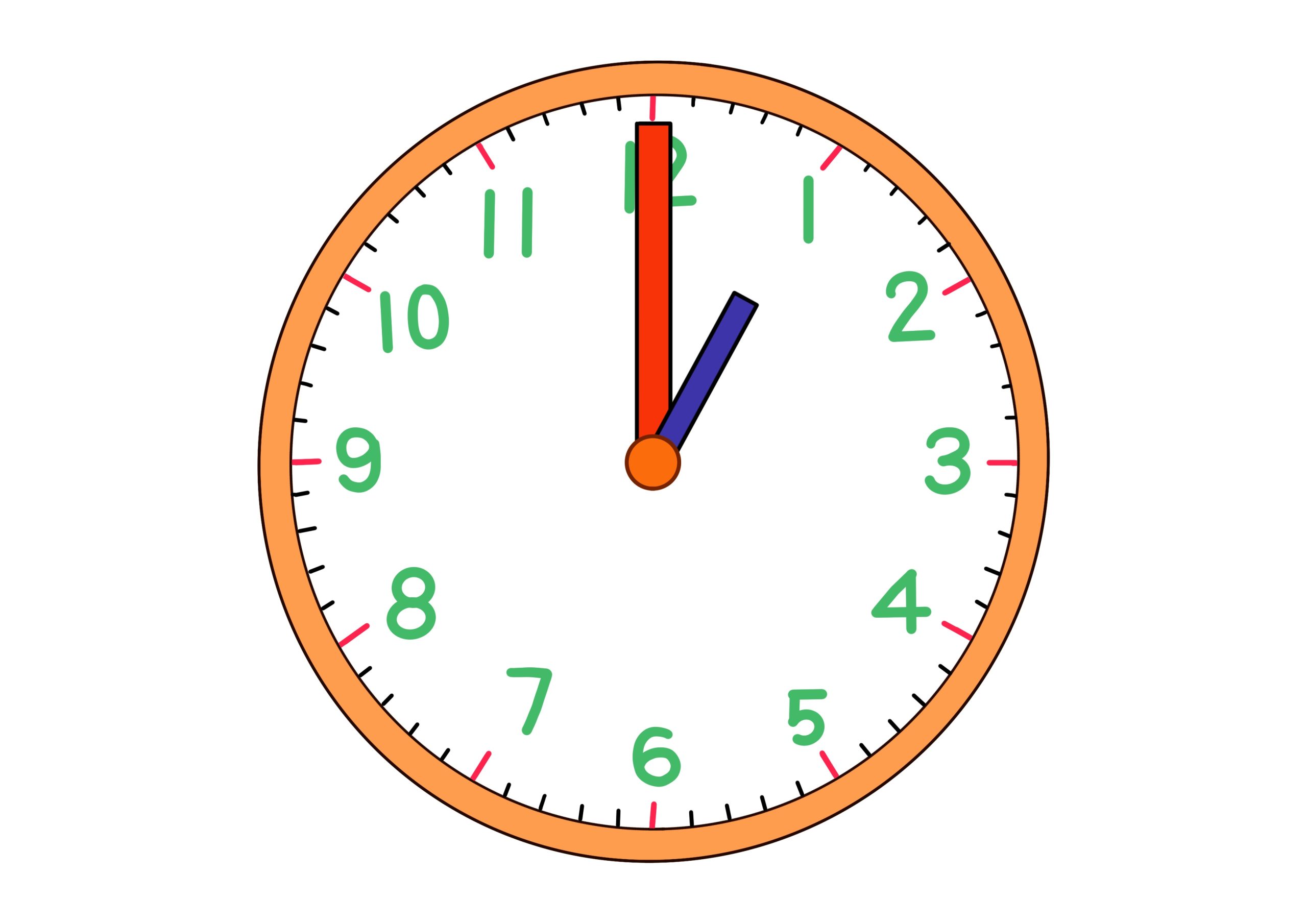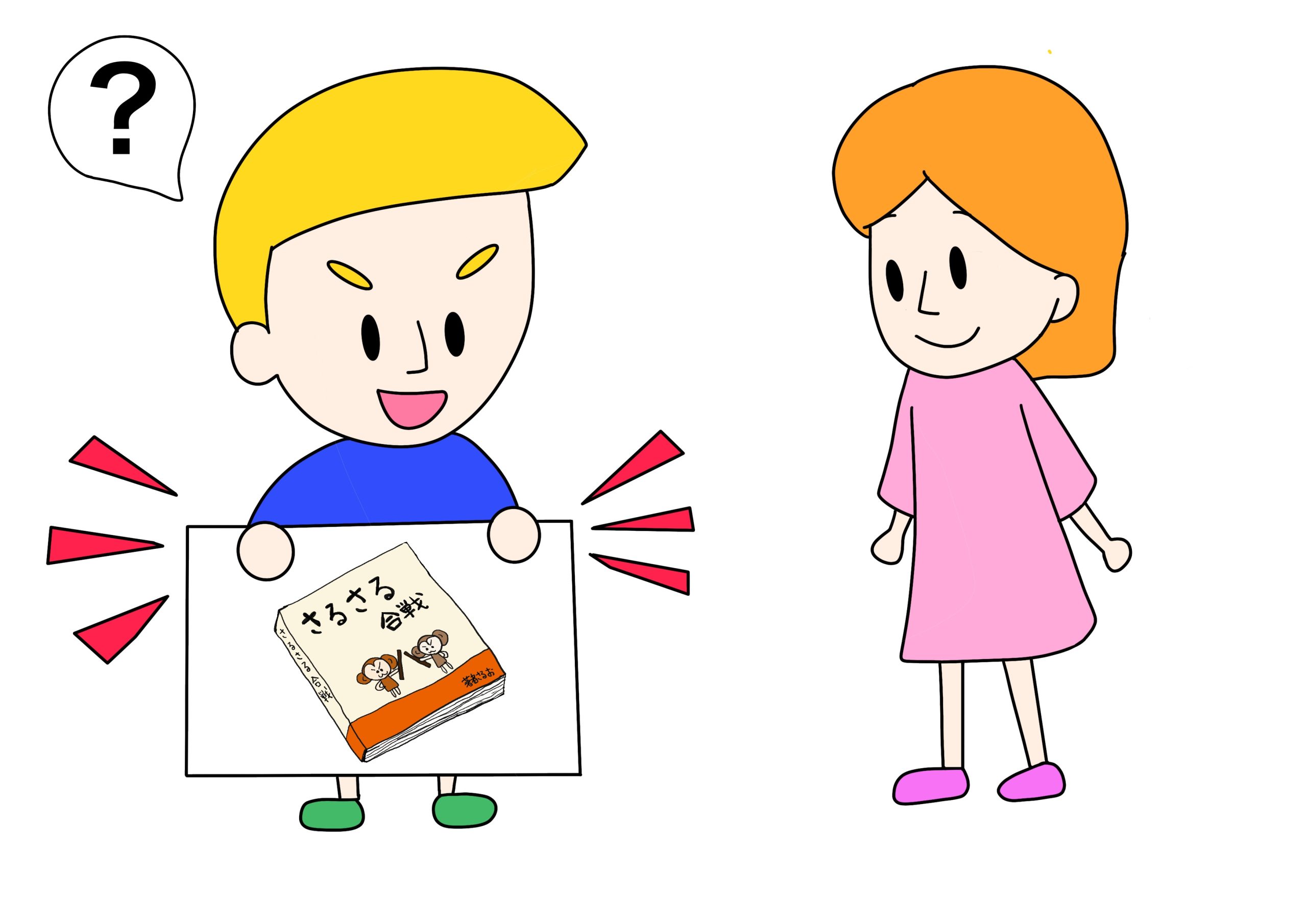Notes on Grammar and Vocabulary
*Don’t bother with all the basic writing system in this section at this moment. Please just get used to see them for now.
Yookoso Textbook provides Yookoso! Online Learning Center website where you can listen to the all the dialogues and vocabulary.
Meeting Others and Introducing Yourself
Hajimemashite. (はじめまして): How do you do?
xxxxx desu.(xxxxxです):I am; (she is; he is; they is) xxxxx.
Doozo yoroshiku.(どうぞよろしく) : It’s nice to meet you.

xxxxx desu ka. (xxxxxですか):
Are you (is she/ he/ they) xxxxx?
xxxxx (someone else’s name) san(xxxxxさん)
Mr./ Ms./ Mrs./ Mx. xxxxx
xxxxx(name) desu(xxxxxです):
(I am; she is; he is; they is; it is; they are) xxxxx
xxxxx wa yyyyy desu ka(xxxxxはyyyyyですか)
hai (はい): yes (agree; right; affirmative)
Iie (いいえ)(no; disagree; negative)
X no Y (XのY); X’s Y; Y of X
Kikimashoo (ききましょう) Let’s listen
Dialogues From Yookoso Textbook
Dialogue 1 A simple Introduction
Dialogue 2 Meeting Someone and Then Introducing Yourself
Dialogue 3 Inquiring About Someone’s Name
Dialogue 4 Asking for Someone’s Name
Mimashoo (みましょう)Let’s watch
Kikimashoo (ききましょう) Let’s listen
Hajimemashite (はじめまして)
Getting to Know Japanese Language & Culture
XXX desu (XXX です)
Getting to Know Japanese Language & Culture
XXX san desu (XXX さんです)
Getting to Know Japanese Language & Culture
XXX san desu ka; hai; iie(XXXさんですか はい いいえ)
Getting to Know Japanese Language & Culture
Doozo Yoroshiku (どうぞ よろしく)
Getting to Know Japanese Language & Culture
Everyday Greetings

Ohayoo gozaimasu
(おはようございます)
:good morning (formal)Ohayoo (おはよう):
good morning (informal)Kon-nichiwa (こんにちは):
 good afternoonKonbanwa(こんばんは):
good afternoonKonbanwa(こんばんは):good eveningIi (o)tenki desu ne. (いい(お)てんきですね)
It is nice weather, isn’t is?Ee, soo desune. (ええ、そうですね)
Yes, it is.(O)genki desu ka(おげんきですか)
How are you?Ee(ええ):
yes; I see;Okagesama de(おかげさまで):
Thanks to you, I’m fine.Shibaraku desu ne(しばらくですね)

or
(O)hisashiburi desu ne(おひさしぶりですね)
I haven’t seen you for a long time.Shitsuree shimasu(しつれいします)
or
Ja (dewa) mata(じゃ、また)(では、また)
or
Sayoonara(さようなら)
Good byeOyasumi nasai(おやすみなさい)
Good night
Kikimashoo (ききましょう) Let’s listen
From Yookoso Textbook
Morning Greetings
Common Greetings and Leave-Taking
Kikimashoo (ききましょう) Let’s listen
Mimashoo (みましょう)Let’s watch
Thank you (casual)Arigatoo gozaimasu (ありがとうございます)Thank you (formal)Doo itashimashite (どういたしまして)
You are welcomeIie (いいえ)
You are welcome (no mention about it)Doomo (どうも)Thanks. (casual) or very
(* Doomo can be many meanings in fact.)Doomo arigatoo (どうもありがとう)
Thank you very much (casual)Doomo arigatoo gozaimasu (どうもありがとうございます)
Thank you very much
Kikimashoo (ききましょう) Let’s listen
From Yookoso Textbook:
Name cards and thank you
Classroom Expressions
| <Classroom> *all nouns can be plural as well |
kyooshitu きょうしつ classroom |
sensee せんせい teacher/ professor/ instructor |
isu いす chair |
| kyookasho きょうかしょ textbook |
teeburu テーブル table |
tsukue つくえ desk |
jisho じしょ dictionary |
| hon ほん book |
kami かみ paper |
doa ドア door |
mado まど window |
| nooto ノート notebook |
gakusee がくせい student |
kaban かばん bag |
bakkupakku バックパック backpack |
| kokuban こくばん blackboard |
denki でんき light/ electricity |
enpitsu えんぴつ pencil |
booru pen ボールペン ballpoint pen |
| keshigomu けしゴム eraser |
shaapu pen(shiru) シャープペン(シル) mechanical pencil |
konpyuuta コンピュータ computer |
taburetto タブレット tablet |
| sumaho スマホ smart phone |
rapputoppu ラップトップ laptop |
||
Classroom useful vocabulary
Japan Foundation
<expressions>
Kiite kudasai (きいて ください):
Please come
Mite kudasai(みて ください):
Please look at/ watch/ see
Itte kudasai(いって ください):
Please say
Yonde kudasai(よんで ください):
Please read/ call
Kaite kudasai(かいて ください):
Please write
Hanashite kudasai(はなして ください):
Please talk/ speak
______kudasai(____ください):
Please ________(verb)
Moo ichido itte kudasai(もういちど いって ください) :
Please say one more time/ again
Moo ichido _____kudasai(もういちど_____ください):
Please _____ one more time/ again
Hon o tojite / akete/ kudasai
(ほんを とじて・あけて ください):
Please close/open a book
Nooto o dashite kudasai
(ノートを だして ください)
Please take out a notebook
____o ___kudasai
(___を____ください)
Please _______(object) verb.
Hon o minaide kudasai(
ほんを みないで ください)
Please do NOT see/ look at a book
___ o __naide kudasai(
___を___ないで ください):
Please do not _____object verb
Wakarimasu ka(わかりますか):
Do you understand?
Wakashimashita ka(わかりましたか)
Did you understand?
Hai(はい):
Yes; agree;
Warimasu(わかります):
I (you, she, he, they, they) understand (s)
Wakarimashita(わかりました):
I (you, she, he, they, they) understood(s)
Iie(いいえ)No/ disagree/ not at all
Wakarimasen(わかりません)
I (you, she, he, they, they) don’t / doesn’t understand
Shitumon ga arimaru ka(しつもんが ありますか)
Do/ does (you, she, he, they, they) have a question
Hai arimasu(はい、あります)
Yes, (I, you, she, he, they, they) do/ does.
Iie arimasen(いいえ、ありません)
No, (you, she, he, they, they) do not/ does not
Iidesu ka(いいですか)Is it good/ OK/ fine?
Iidesu ne(いいですね)It’s good/ OK/ fine isn’t it?
Kikimashoo (ききましょう) Let’s listen
From Yookoso Textbook:
Classroom Expressions 1
Classroom Expressions 2
Numbers
![]()
![]()
![]()
![]()
![]()
![]()
![]()
![]()
![]()
![]()
![]()
![]()
| suuji (すうじ) | 0 zero/ ree ゼロ れい |
1 ichi いち |
2 ni に |
| 3 san さん |
4 shi/ yon し よん |
5 go ご |
6 roku ろく |
| 7 shichi/ nana しち なな |
8 hachi はち |
9 ku/ kyuu く きゅう |
10 juu じゅう |
| 11 juu-ichi じゅういち |
12 juu-ni じゅうに |
13 juu-san じゅうさん |
14 juu-shi (yon) じゅうし よん |
| 15 juu-go じゅうご |
16 juu-roku じゅうろく |
17 juu-shichi (nana) じゅうしち なな |
18 juu-hachi じゅうはち |
| 19 juu-ku (kyuu) じゅうく きゅう |
20 ni-juu にじゅう |
Kikimashoo (ききましょう) Let’s listen
From Yookoso textbook:
Numbers up to 20
From Yookoso workbook: kikimashoo, kurikaeshimashoo Let’s listen and Let’s repeat)
Telephone Numbers
xxxxxさんのでんわばんごうは(なんばんですか)。
What is (your/ Ms. ‘/Mrs.’/ Mr. ‘s/Mx. ‘s) telephone number?###-(no)###-(no) #### desu.
###-(の)###-(の)#### です。
(telephone number )is XXX-XXX-XXXX._______desu ne.(________ ですね。)
_______, isn’t it?_______desu ka.(________ ですか。)
Is __________?Hai, soo desu. (はい、そうです。)
Yes, it is.Iie, chigai masu. (いいえ、ちがいます。)
No, it’s wrong (different)Iie, soo ja arimasen.
(いいえ、そうじゃありません。)
No, it isn’t.
Kikimashoo (ききましょう) Let’s listen
From Textbook:
Dialogue Telephone number 1
Dialogue telephone numbers 2
Time
| ichi-ji いちじ1:00 1じ |
ni-ji にじ2:00 2じ |
san-ji さんじ3:00 3じ |
yo-ji よじ4:00 4じ |
| go-ji ごじ5:00 5じ |
roku-ji ろくじ6:00 6じ |
shichi-ji しちじ7:00 7じ |
hachi-ji はちじ8:00 8じ |
| ku-ji くじ9:00 9じ |
juu-ji じゅうじ10:00 10じ |
juu-ichi-ji じゅういちじ11:00 11じ |
juu-ni-ji じゅうにじ12:00 12じ |
| nan-ji desu ka なんじですか What time is it? |
#ji desu #じです It is #:00 |
gozen ごぜん AM |
gogo ごご PM |
| gozen ichi-ji-han ごぜんいちじはん ごぜん1じはん 1:30 am |
gogo san-ji-han ごごさんじはん ごご3じはん 3:30 pm |
yo-ji-han よじはん 4じはん 4:30 |
 |
| asa あさ morning |
hiru ひる day taime |
yuugata ゆうがた evening |
yoru よる night |
Kikimashoo (ききましょう) Let’s listen
From Yookoso Textbook:
Asking about the time in other places
Kikimashoo (ききましょう) Let’s listen
Mimashoo (みましょう)Let’s watch
Asking What Something is
What is that? (far away)(Are wa) ___ desu (あれは)___です。
(That’s) ________.
Examples
A: Are wa nan desu ka.(あれは なんですか。)
What is that?
B: (Are wa) Nihongo no kyookasho desu. ( (あれは)にほんごのきょうかしょです。)
(That’s) Japanese textbook.
Pronouns:
KORE, ARE, SORE, DORE
これ それ あれ どれ
| Pronoun | place of object | examples |
| Kore
(これ) |
Object is closer to the speaker. | Kore wa nihongo no hon desu. これは にほんごのほんです。 This (closer to me) is Japanese book. ) |
| Sore
(それ) |
Object is closer to the listener. | Sore wa chokoreeto desu ne. それは チョコレートですね。 That (close to you) is chocolate, isn’t it? |
| Are
(あれ) |
Object is far form both. | Are wa dare no meeshi desuka. あれは だれのめいしですか。 Whose business card it that (far away from both of us)?(Are wa) Miraa san no (meeshi) desu. (あれは)ミラーさんの(めいし)です。 (That’s) Mr. Miller’s (business card). |
| Dore
(どれ) |
Which item? | Sumimasen, enchirada wa dore desuka. すみません、エンチラーダは、どれですか。 Excuse me, which one is Enchilada?(Enchirada wa) are desu yo. (エンチラーダ)は あれですよ。 (Enchilada is) that (far away from both) one. |
 |
 |
 |
| KORE(これ) | SORE(それ) | ARE(あれ) |
Kikimashoo (ききましょう) Let’s listen
From Textbook:
Dialogue
Daily Activities (non-past)
okimasu おきます: get up
asagohan/ hirugohan/ bangohan o tabemasu : eat breakfast/ lunch/ supper/
あさごはん・ひるごはん・ばんごはんを たべます
gakkoo/ kurasu/ toshokan e ikimasu: go to school/ class/ library
学校・クラス・としょかんへ いきます
o-cha o nomimasu おちゃを のみます: drink tea
uchi e kaerimasu うちへ かえります: go back to home/ house
undoo o shimasu うんどうを します: do exercise
terebi o mimasu テレビを みます: watch TV
hon o yomimasu ほんを よみます: read a book
ongaku o kikimasu おんがくを ききます: listen to music
nihongo o benkyoo shimasu にほんごを べんきょうします: study Japanese
tegami o kakimasu てがみを かきます write a letter
deeto (o) shimasu デート(を)します do (go on) a date
yakyuu o shimasu やきゅうを します play baseball
kaimono ni ikimasu かいものに いきます go shopping
nemasu ねます sleep
tomodachi ni aimasu ともだちに あいますmeet a friend
denwa (o) shimasu でんわ(を)します make a phone call
Kikimashoo (ききましょう) Let’s listen
From Yookoso Textbook:
Frequency
mainichi(まいにち)every day
yoku (よく)often
tokidoki(ときどき)sometimes
amari +neg. (あまり〜ません) not much/ not so often
zenzen + neg (ぜんぜん〜ません)not at all
Kikimashoo (ききましょう) Let’s listen
From Yookoso Textbook:
Dialogue
Future Activities and Events
| kyoo (today) きょう |
ashita (tomorrow) あした |
asatte (the day after tomorrow) あさって |
| konshuu (this week) こんしゅう |
raishuu (next week) らいしゅう |
saraishuu (the week after next) さらいしゅう |
| shuumatsu (weekend) しゅうまつ |
Kikimashoo (ききましょう) Let’s listen
From Yookoso Textbook:
Days and Weeks
Likes and Dislikes
 XXXXX ga suki desu.
XXXXX ga suki desu.XXXXXが すきです。
(I, you, she, he, they, they) like, likes__________.XXXXX ga kirai desu.
XXXXXが きらいです。
(I, you, she, he, they, they) dislike,dislikes__________.XXXXX ga suki ja(dewa) arimasen.
XXXXXがすきじゃ(では)ありません。
(I, you, she, he, they, they) do, does not like __________.


XXXXX ga suki desu ka.
XXXXXが すきですか。
Do/ Does you/ she/ he/ they/ they like/ likes ______?donna XXXXX ga suki desu ka.
どんなXXXXXが すきですか。
What kind of XXXX do/ does you/ she/ he/ they/ they like/ likes?
Examples
Q: Koohii ga suki desu ka. (コーヒーがすきですか。)
Do you like coffee?
A:Hai, suki desu. (はい、すきです。)
Yes, I do.
Q: Rappu ga suki desu ka. (ラップがすきですか。)
Do you like rap music?
A: Iie, suki ja arimasen. (いいえ、すきじゃありません。)
or Iie, suki dewa arimasen. (いいえ、すきではありません。)
Q: Donna ongaku ga suki desu ka. (どんなおんがくが すきですか。)
What kind of music do you like?
A: Rokku ga suki desu. (ロックがすきです。)
I like Rock.
B: Watashi wa yasai ga daisuki desu. Demo, niku ga kirai desu.
(わたしは やさいが すきです。でも、にくが きらいです。)
I like vegetables; however, I dislike meat.
Kikimashoo (ききましょう) Let’s listen
From Yookoso Textbooks:
Dialogue
Activities and Events (past)
Question Words:
| nani, nan なに;なん what |
nan-ji なんじ what time |
itsu いつ when |
dare だれ who |
| doko どこ where |
don-naNOUN どんなNoun what kind of NOUN |
dochira どちら which one (between two) |
dore どれ which (among three or more) |
Time Expressions:
Non-Past verb and Past verb; Affirmative and Negative
| affirmative
|
negative
|
|
| non-past | ______masu ___ます |
________masen ____ません |
| past | ______mashita ___ました |
________masendeshita ____ませんでした |
| affirmative non-past | affirmative past | negative non-past | negative past | |
| eat | tabemasu たべます |
tabemashita たべました |
tabemasen たべません |
tabemasendeshita たべませんでした |
| drink | noimasu のみます |
nomimashita のみました |
nomimasen のみません |
noimasendeshita のみませんでした |
| sleep | nemasu ねます |
nemashita ねました |
nemasen ねません |
nemasendeshita ねませんでした |
| read | yomimasu よみます |
yomimashita よみました |
yomimasen よみません |
yomimasendeshita よみませんでした |
| go | ikimasu いきます |
ikimashita いきました |
ikimasen いきません |
ikimasendeshita いきませんでした |
| see/watch | mimasu みます |
mimashita みました |
mimasen みません |
mimasendeshita みませんでした |
| do/ play | shimasu します |
shimashita しました |
shimasen しません |
shimasendeshita しませんでした |
Examples
Q: Kinoo nan ji ni bangohan o tabemashita ka. (きのう、なんじに ねましたか。)
What time did you eat dinner yesterday?
A: Gogo shichi ji ni tabemashita. (ごご しちじに たべました。)
I ate at 7 pm.
Q: Nani o tabemashita ka. (なにを たべましたか。)
What did you eat?
A: Piza o tabemashita. (ピザをたべました。)
I ate pizza.
Kikimashoo (ききましょう) Let’s listen
From Yookoso Textbook:
Inviting
いっしょに にほんごを べんきょうしませんか。
________ませんか。
Would like to_________?<Accepting>
Ee ii desune. (ええ、いいですね。) : Y
es, that’s good.< declining with hesitation>
Sumimasen ga, chotto… (すみませんが ちょっと…):
Sorry, but a little…Ee, demo chotto… (ええ、でも ちょっと….) : Y
es, but a little…
Kikimashoo (ききましょう) Let’s listen
From Yookoso Textbook:
Dialogue
Weekly Schedules
Days of the Week
| nichi yoobi | Sunday | にちようび |
| getsu yoobi | Monday | げつようび |
| ka yoobi | Tuesday | かようび |
| sui yoobi | Wednesday | すいようび |
| moku yoobi | Thursday | もくようび |
| kin yoobi | Friday | きんようび |
| do yoobi | Saturday | どようび |
| konshuu no XX yoobi
senshuu no XX yoobi |
this ___day | こんしゅうのXXようび |
From Yookoso Textbook:
Days of the Week
Weather
Ending “ne” shows sharing information in the conversation with a mutual topic.
Ii (o) tenki desu ne. (いい(お)てんきですね。)
It’s nice weather, isn’t it?
Hidoi (o) tenki desu ne .(ひどい(お)てんきですね。)
It’s terrible weather, isn’t it?
Ame desu ne. (あめですね。)
It’s raining, isn’t it?
Ooame desune. (おおあめですね。)
It’s raining hard isn’t it?
or
Hidoi ame desu ne. (ひどいあめですね。)
It’s raining hard isn’t it?
Yuki desu ne. (ゆきですね。)
It’s snowing, isn’t it?
Ooyuki desu ne. (おおゆきですね。)
It’s snowing hard isn’t it?
or
Hidoi yuki desu ne. (ひどいゆきですね。)
It’s snowing hard isn’t it?
Kyoo wa samui desu ne.(きょうは、さむいですね。)
It’s cold today, isn’t it?
Kyoo wa atsui desu ne.(きょうは、あついですね。)
It’s hot today, isn’t it?
Kyoo wa mushiatsui desu ne.(きょうは、むしあついですね。)
It’s humid heat today isn’t it?
Kyoo wa atatakai desu ne.( きょうは、あたたかいですね。)
It’s warm today, isn’t it?
Kyoo wa suzushii desu ne. (きょうは、すずしいですね。)
It’s cool today, isn’t it?
As response:
(Ee) Soo desu ne. ((ええ)そうですね).
Yes, it is.
Kikimashoo (ききましょう) Let’s listen
From Yookoso Textbook:
Location
Asking Location:
XXXX wa doko desu ka. (XXXX は どこですか。)
Where is XXXX?
YYYY desu. (YYYYです。)
(XXXX is/ are) at/ on YYYYY (place).
Floor of a Building:
| B1 (basement) | chika ikkai | ちかいっかい | ちか1かい |
| 1st floor | ik kai | いっかい | 1かい |
| 2nd floor | ni kai | にかい | 2かい |
| 3rd floor | san kai | さんかい | 3かい |
| 4th floor | yon kai | よんかい | 4かい |
| 5th floor | go kai | ごかい | 5かい |
| 6th floor | rok kai | ろっかい | 6かい |
| 7th floor | nana kai | ななかい | 7かい |
| 8th floor | hak kai (hachi kai) | はっ(はち)かい | 8かい |
| 9th floor | kyuu kai | きゅうかい | 9かい |
| 10th floor | juk kai (jik kai) | じゅっ(じっ)かい | 10かい |
| 11th floor | juuik kai | じゅういっかい | 11かい |
Example
A wants to know where bags are sold at the department store. A decided to ask B, a receptionist at the department store.
A: Sumimasen. Kaban wa doko desu ka.
(すみません、かばんは どこですか。)
B: Yon kai desu. (よんかい です。)
A: Arigatoo gozaimasu. (ありがとうございます。)
Kikimashoo (ききましょう) Let’s listen
From Yookoso Textbook:
Dialogue and floors
Larger numbers
Numbers from 21 to 10,000
| 21 | ni juu ichi | にじゅういち |
| 29 | ni juu kyuu (ku) | にじゅうきゅう(く) |
| 30 | san juu | さんじゅう |
| 40 | yon juu | よんじゅう |
| 50 | go juu | ごじゅう |
| 60 | roku juu | ろくじゅう |
| 70 | nana juu | ななじゅう |
| 80 | hachi juu | はちじゅう |
| 90 | kyuu juu | きゅうじゅう |
| 100 | hyaku | ひゃく |
| 101 | hyaku ichi | ひゃくいち |
| 110 | hyaku juu | ひゃくじゅう |
| 153 | hyaku go juu san | ひゃくごじゅうさん |
| 200 | ni hyaku | にひゃく |
| 300 | san byaku | さんびゃく |
| 400 | yon hyaku | よんひゃく |
| 500 | go hyaku | ごひゃく |
| 600 | rop pyaku | ろっぴゃく |
| 700 | nana hyaku | ななひゃく |
| 800 | hap pyaku | はっぴゃく |
| 900 | kyuu hyaku | きゅうひゃく |
| 1000 | sen | せん |
| 2000 | ni sen | にせん |
| 3000 | san zen | さんぜん |
| 4000 | yon sen | よんせん |
| 5000 | go sen | ごせん |
| 6000 | roku sen | ろくせん |
| 7000 | nana sen | ななせん |
| 8000 | has sen | はっせん |
| 9000 | kyuu sen | きゅうせん |
| 9900 | kyuu sen kyuu hyaku | きゅうせんきゅうひゃく |
| 9990 | kyuu sen kyuu hyaku kyuu juu | きゅうせんきゅうひゃくきゅうじゅう |
| 9999 | kyuu sen kyuu hyaku kyuu juu kyuu | きゅうせんきゅうひゃくきゅうじゅうきゅう |
| 10,000 | ichi man | いちまん |
Kikimashoo (ききましょう) Let’s listen
Flashcards Numbers 1~10,000 (JOSHU)
From Yookoso Textbook:
Dialogue and large numbers
Existence
There are/is; We have XXXXX.XXXX wa (ga) arimasen (XXXXは(が) ありません)
There are/ is not; We do not have XXXXXXXX wa (ga) arimasu ka. (XXXXは (が) ありますか。)
Is /are there XXXXX?; Do you have XXXXX?
Examples
A: Sumimasen, remoneedo wa (ga) arimasu ka.
(すみません、レモンネードがありますか。)
Excuse me, do you have lemonade?
B: Sumimasen ga chotto… (saying no without saying no)
(すみませんが、ちょっと.. )
I am sorry but a little (no with hesitation)
A: Ja (dewa), orengi juusu wa arimasu ka.
(じゃ(では)、オレンジジュースはありますか。)
Then, do you have (Is there) orange juice?
B: Hai, arimasu. (はい、あります。)
Yes, we do (there is.)
Kikimashoo (ききましょう) Let’s listen
Dialogue
Asking Price
Ikura desu ka (いくらですか。)
How much is XXXX?
$## desu. (##ドルです。)
(It’s; they are) $ #.
¥## desu. (## えんです。)
(It;s; they are) ¥#
Ordering
XXXX o onegai shimasu. (XXXXを おねがいします。)
I would like to have XXXX.
XXXX wa ikaga desu ka. (XXXX は いかがですか。)
How about XXXX (suggesting)
Kekkoo desu. (けっこうです。)
No thank you / It is fine (I don’t need.)
Examples
A: Sumimasen, remoneedo wa (ga) arimasu ka.
(すみません、レモンネードがありますか。)
Excuse me, do you have lemonade?
B: Hai Arimasu.
(はい、あります。)
Yes we do.
A: Ikura desu ka.
(いくらですか。)
How much is it?
B: 350 yen desu.
(350えんです。)
It’s 350 yen.
A: Ja (dewa), remoneedo o onegai shimasu.
(じゃ、レモネードをおねがいします。)
Then, I would like to have lemonede.
B: Kukkii wa ikaga desu ka.
(クッキーはいかがですか。)
How about some cookies?
A: Iie (ie), kekkoo desu.
(いいえ(いえ)、けっこうです。)
No, thank you.
Kikimashoo (ききましょう) Let’s listen
Dialogue
Review: All Vocabulary
Kikimashoo (ききましょう) Let’s listen
Media Attributions
- https://www.irasutoya.com/
- https://www.irasutoya.com/
- https://nihongopic.com/illustration-this-that/ by Nihongo kyooshi pikku
- https://freeillust-classic.com/
- https://nihongopic.com/

